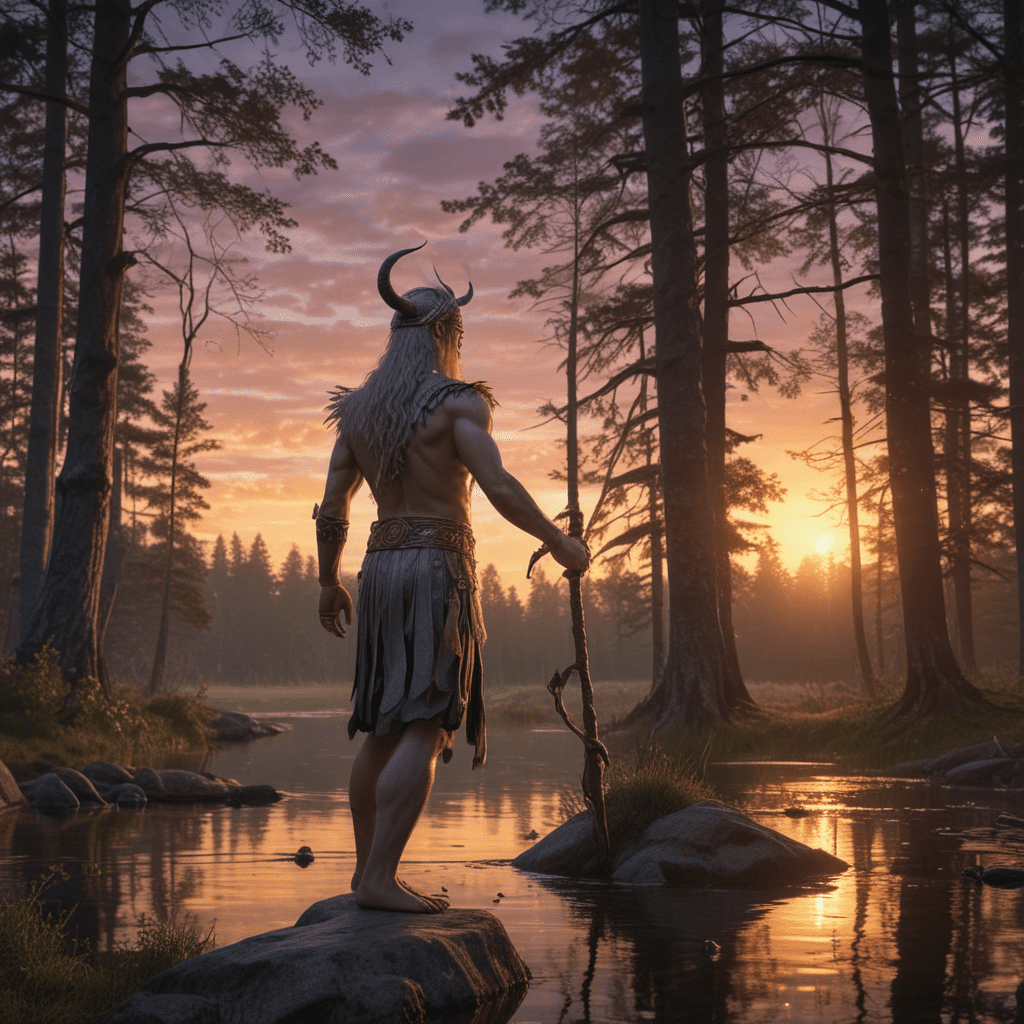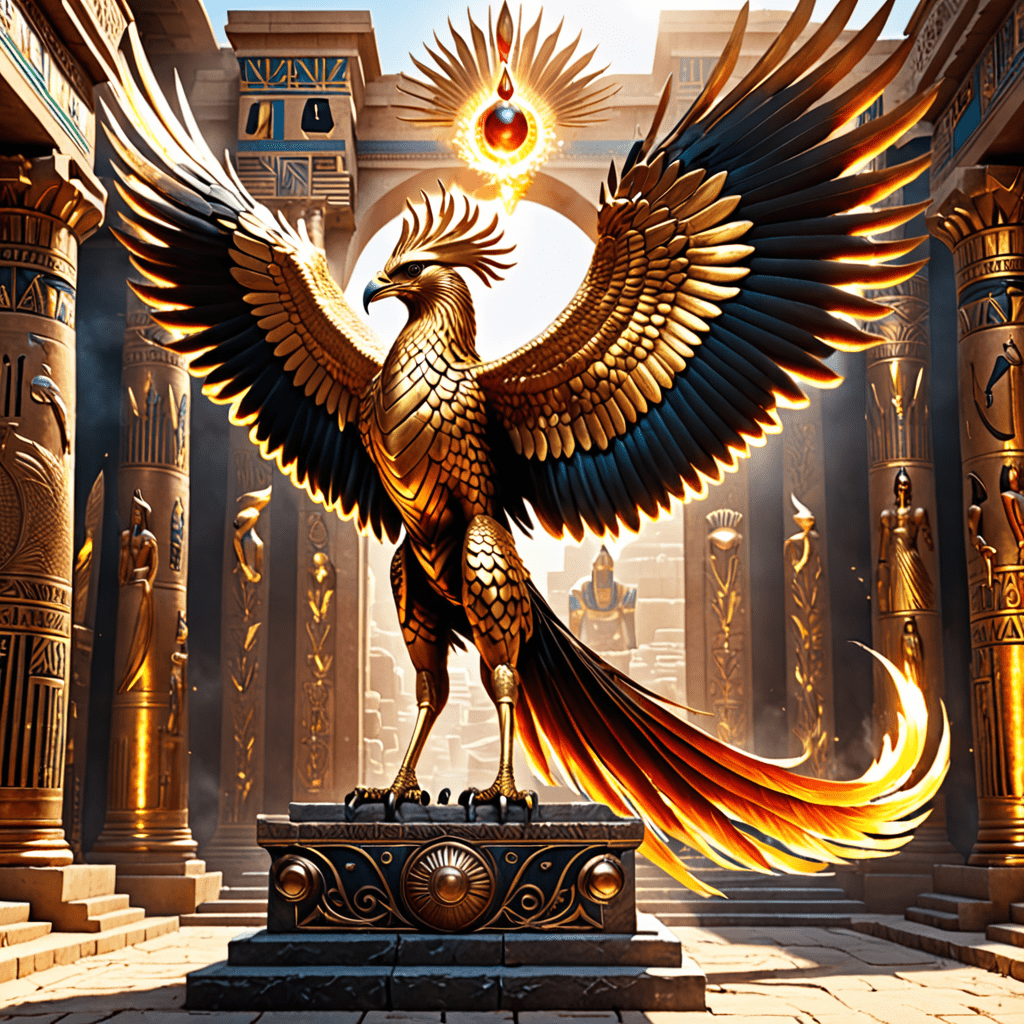The Most Iconic Legends of Ancient Deities and Their Impact
Introduction to Ancient Deities
In ancient cultures, deities were often defined as powerful beings who were worshipped as controlling forces of nature, human fate, and the cosmos. These gods and goddesses embodied various aspects of life, representing everything from love and war to agriculture and the afterlife. Myths and legends surrounding these figures served not only as a means of explaining the world but also as a way to convey moral lessons and cultural values.
The Pantheon of Ancient Greece
Greek mythology is one of the most elaborate and well-known mythologies in history. The Greek pantheon includes a vast array of gods and goddesses, with key figures such as:
- Zeus: The king of the gods, ruler of Mount Olympus, and god of the sky.
- Hera: Zeus’s wife, goddess of marriage and family.
- Athena: The goddess of wisdom, warfare, and crafts, born from Zeus’s forehead.
The significance of these deities extended beyond mere worship; they played crucial roles in the daily lives of ancient Greeks. Myths involving these figures helped explain natural phenomena, human behavior, and societal norms, influencing everything from politics to education.
The Legends of Ancient Egyptian Gods
Ancient Egyptian mythology features a rich tapestry of gods and goddesses, each with unique attributes and stories. Key figures include:
- Ra: The sun god, who was believed to traverse the sky and the underworld.
- Osiris: The god of the afterlife, resurrection, and agriculture.
- Isis: The goddess of magic and motherhood, known for her role in the story of Osiris.
Mythology in ancient Egypt served as a foundational element of their society, influencing their art, architecture, and religious practices. The beliefs in the afterlife led to elaborate burial customs and monumental structures such as pyramids, serving both practical and spiritual purposes.
Norse Mythology and Its Iconic Figures
Norse mythology presents a fascinating pantheon that has captivated audiences for centuries. Central figures include:
- Odin: The All-Father, associated with wisdom, war, and death.
- Thor: The god of thunder, known for his strength and protection of mankind.
- Freyja: The goddess of love, beauty, and fertility.
The impact of Norse legends is evident not only in literature but also in modern culture, with their stories inspiring works in film, television, and comics. The themes of heroism, sacrifice, and fate resonate with contemporary audiences, keeping the legends alive.
Hindu Deities and Their Rich Narratives
Hinduism boasts a complex pantheon of deities, each representing different facets of life and the universe. Key figures include:
- Vishnu: The preserver and protector of the universe, often incarnated in various forms, including Rama and Krishna.
- Shiva: The destroyer and transformer, known for his ascetic lifestyle and cosmic dance.
- Durga: The fierce goddess representing strength and protection, often depicted battling evil forces.
The influence of Hindu myths extends beyond religion, permeating art, philosophy, and spirituality. The epics like the Mahabharata and Ramayana are not only religious texts but also significant literary works that explore complex themes of duty, righteousness, and the human condition.
The Role of Mesopotamian Gods in Civilization
Mesopotamian mythology is one of the earliest recorded belief systems, with deities such as:
- Marduk: The chief god of Babylon, associated with creation and order.
- Ishtar: The goddess of love, war, and fertility.
These gods played vital roles in the establishment of laws, agricultural practices, and urban life. The famous Code of Hammurabi, a set of laws, was believed to be divinely inspired, reflecting the deep connection between religion and governance in ancient Mesopotamia.
The Influence of Ancient Deities on Modern Religion
Many ancient beliefs have left a lasting impact on contemporary spiritual practices. By comparing ancient deities with modern religious figures, we can see parallels and influences. For example:
- The concept of a singular god in monotheistic religions can be traced back to earlier polytheistic beliefs, where a supreme deity was often seen as the leader of other gods.
- Myths surrounding resurrection in ancient religions, such as the story of Osiris, echo in the resurrection narratives found in Christianity.
These legends have shaped the foundations of major world religions, illustrating humanity’s ongoing quest for understanding and connection to the divine.
Cultural Representations of Ancient Deities in Art and Literature
Throughout history, ancient deities have been depicted in various forms of art and literature. This includes:
- Vase paintings and sculptures in ancient Greece portraying gods and goddesses in human-like form.
- Hieroglyphs and temple reliefs in ancient Egypt illustrating the narratives of their gods.
- Medieval and modern literature inspired by Norse and Hindu myths, showcasing their enduring appeal.
The legacy of these ancient legends persists in modern storytelling and pop culture, influencing films, books, and visual arts that explore similar themes of heroism, morality, and the supernatural.
The Psychological and Sociological Impact of Deity Legends
Ancient myths and legends play a crucial role in shaping human behavior and societal norms. They often address universal themes such as:
- The struggle between good and evil.
- The quest for knowledge and personal growth.
- The importance of community and family.
By analyzing these legends, we can gain insights into the values and psychological constructs that guided ancient civilizations, providing a mirror to our own societal structures and challenges.
Conclusion: The Enduring Legacy of Ancient Deities
The significance of ancient deities and their associated legends continues to resonate in our lives today. They offer a rich tapestry of narratives that help us understand human experience, morality, and our place in the universe. As we reflect on these stories, we recognize their ongoing relevance in exploring the complexities of existence, the nature of belief, and the shared heritage of humanity.
![]()



